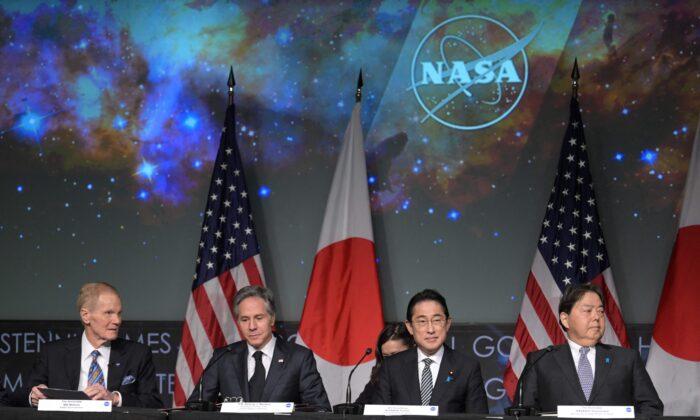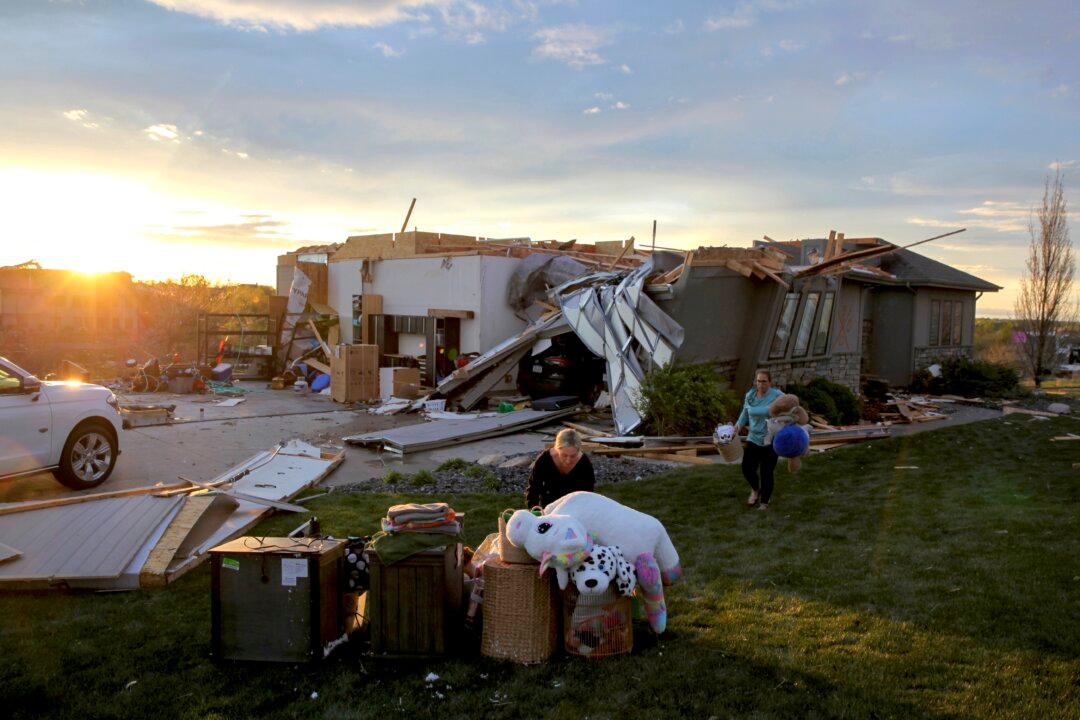The United States and Japan hosted their first ever space engagement talks on July 18 to enhance combined space operations and tackle adversaries with “questionable intentions,” the U.S. Space Force stated.
The space engagement talks were led by Lt. Gen. Philip Garrant, a U.S. Space Force deputy chief of space operations, strategy, plans, programs, and requirements, according to the Space Force’s press release.
Brig. Gen. Anthony Mastalir, commander of Space Force Indo-Pacific, hosted the talks and said they aimed to further expand the countries’ collaboration in space, a critical domain for military operations and intelligence.
“Through these talks and Space Working Groups to follow, we can build a roadmap for cooperation to ensure safety and security in space for our nations and all responsible actors,” Brig. Gen. Mastalir stated.
The Space Force said that establishing “norms of behavior” for space operations is crucial to attribute actions, mitigate threats, protect interests in space, and reduce the risk of strategic miscalculations.
“The potential benefits of such collaborations include greater situational awareness, improved operational effectiveness, and increased resiliency in the face of emerging threats,” the Space Force stated.
“For example, countries with advanced space capabilities can provide technical assistance and training to those with developing space programs, while those with access to strategic locations and infrastructure can provide valuable support in areas like satellite tracking and communication,” it added.
United Defenses
Secretary of State Antony Blinken said the agreement “has been a decade in the making,” encompassing various aspects ranging from joint research efforts to collaborative endeavors aimed at landing the first woman and minority astronaut on the Moon.The United States and Japan have been strengthening their defense cooperation amid the shifting security environment and emergent threats posed by communist China, North Korea, and Russia.
Mr. Hayashi said that China “presents an unprecedented and the greatest strategic challenge,” adding that its “foreign policy to recreate international order to serve its self-interest is a grave concern for the Japan–U.S. Alliance and for the whole of the international community.”
The four officials said that Japan and the United States would “continue to be united” in raising objections against the Chinese regime’s attempts to “change [the] status quo in the East China Sea,” including its attempts to undermine Japan’s administration of the Senkaku Islands, uninhabited islands in the East China Sea located northeast of Taiwan.
The United States also strongly endorsed Japan’s decision to acquire ship-launched U.S. Tomahawk cruise missiles made by Raytheon Technologies to give it “counterstrike capability” amid concerns of an impending attack by the Chinese regime or North Korea.





